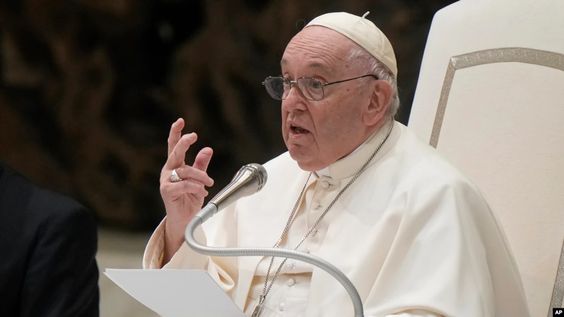Africa
Pope Francis will travel to the DR Congo and South Sudan, two fragile countries in Africa

Pope Francis starts a trip to two troubled African countries on Tuesday. These countries are often overlooked by the rest of the world, and their long-lasting wars have caused millions of refugees and displaced people to struggle with hunger.
On his trip to South Sudan and the Democratic Republic of the Congo (DRC) from January 31 to February 5, the 86-year-old pope will visit countries where most of the people are Catholic and where the Church plays a big role in improving democracy, health care, and education.
Francis had a flare-up of a recurring knee illness in July of last year, so the trip had to be postponed. Even though he still requires a wheelchair and cane, his knee has greatly improved.
South Sudan and the Democratic Republic of the Congo both have a lot of natural resources, but they are both poor and have civil wars.
The DRC, the second-largest nation in Africa with a population of around 90 million, is receiving a papal visit for the first time since John Paul II visited in 1985, when it was still known as Zaire.
Francis was supposed to stop in the eastern city of Goma, but that trip was cancelled because the army and the M23 rebel group started fighting again. In 2021, the Italian ambassador, his bodyguard, and his driver were killed in an ambush in Goma.
Francis will remain in Kinshasa, the country’s capital, and meet there with eastern victims of violence.
Archbishop Ettore Balestrero, the ambassador of the Vatican to the DRC, told Reuters that the situation in Congo was a moral emergency that should not be ignored.
In the DRC, acute hunger affects 26 million people, according to the U.N. World Food Program.
The 45 million-strong Catholic Church in the nation has a long history of advancing democracy, and as the pope approaches, it is preparing to oversee the elections that will be held in December.
Christ Trott, a British ambassador to the Vatican who has extensive experience working as a diplomat in Africa, expressed the hope that the visit will strengthen the church’s commitment to supporting the democratic process in the Democratic Republic of the Congo.
READ ALSO: Grip of Al-Shabab on Somalia is slipping
The DRC is receiving a papal visit for the first time since John Paul II visited in 1985, when it was still known as Zaire.
unprecedented group adoration
When the pope travels from Kinshasa to Juba, the capital of South Sudan, on Friday, the journey assumes an unparalleled character.
This step is being taken in collaboration with Justin Welby, the Archbishop of Canterbury, and Iain Greenshields, the Moderator of the General Assembly of the Church of Scotland.
They constitute the majority of Christians in the world’s youngest nation, which earned independence from the largely Muslim Sudan in 2011 and has a population of about 11 million.
Welby predicted that this trip would be momentous. “Leaders of three separate branches of [Christianity] are coming together in an unprecedented fashion after centuries of division.”
Conflict broke out two years after independence when forces loyal to President Salva Kiir and those loyal to Vice President Riek Machar, who is of a different ethnic group, engaged in combat. A civil war broke out as a result of the slaughter, which claimed 400,000 lives.
The worst of the violence was stopped by a 2018 agreement, but some of the terms, like the deployment of a reunified national army, have not yet been put into practise.
According to the United Nations, there are 2.2 million people who are internally displaced within South Sudan, and an additional 2.3 million have fled the country as refugees. The UN has praised the Catholic Church as a “powerful and active force in building peace and reconciliation in conflict-torn regions.”
Francis kissed the feet of South Sudan’s former warring leaders during a retreat at the Vatican in April 2019 and begged them not to restart the country’s civil war, making it one of the most stunning acts of kindness since he assumed the role of pope in 2013.
The three churchmen should be able to persuade political figures to “fulfil the promise of the independence struggle,” according to Trott, a former ambassador to South Sudan.
Reuters
